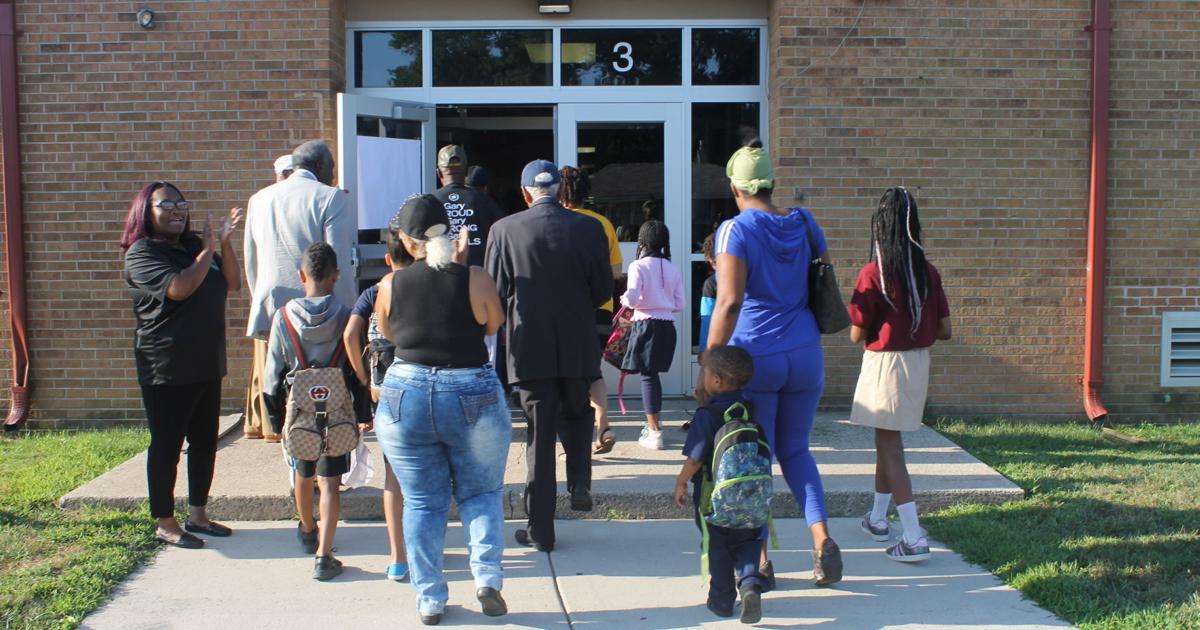
UT’s School of Education Receives Over Million to Boost College Readiness for Low-Income Students
In a significant move to enhance educational opportunities, the U.S. Department of Education has awarded the University of Texas at Austin’s School of Education a remarkable million in grants. This funding, distributed through the Institute for Public School Initiatives (IPSI), aims to improve college and career readiness for more than 9,000 low-income students each year. The announcement, made on October 24, emphasizes a commitment to supporting underserved communities in their pursuit of higher education.
The grants, known as “All In” and “Mindset College Ready,” are integral components of a broader initiative referred to as GEAR UP (Gaining Early Awareness and Readiness for Undergraduate Programs). This federal program is designed to enhance educational outcomes for disadvantaged students, particularly those in Texas. With this latest round of funding, UT is set to become the leading recipient of GEAR UP grants in the state, reaching more than 24,000 students across 21 different school districts.
Michael King, a director at UT’s IPSI, highlighted that the longevity and sustainability of the programs funded by these grants are crucial. “One of the things that the Department of Education requires is sustainability,” King stated. This means the initiative isn’t just a temporary influx of resources but a lasting framework designed to benefit both students and districts over time. Rather than focusing solely on a single cohort, the program aims to provide a model of success that school leadership can adopt and perpetuate.
The grants will fund a variety of programs that equip students with essential skills and instill confidence, enabling them to pursue post-secondary education. Services such as tutoring, academic counseling, and college readiness initiatives are core components of this holistic approach.
The IPSI’s mission is not only about academic achievement; it also encompasses the overall health and wellness of students. “Our initiatives are designed to support the whole student, from academic achievement to health and wellness, and we are committed to advancing public education through our work,” reads a statement from the institute’s website. This comprehensive strategy recognizes that educational success is closely tied to a student’s overall well-being and community support.
A powerful testament to the impact of GEAR UP can be found in the story of Adamaris Olivares-Lopez, a journalism freshman at UT. Olivares-Lopez participated in the GEAR UP program during high school and credits it with significantly shaping her academic trajectory. A mentor from her school, affectionately known as Ms. Noack, played a pivotal role in guiding her towards various academic and scholarship opportunities. Olivares-Lopez recalls, “Ms. Noack would see that there was a college that I would want to go to, where there was something that was interesting to me; she would reach out and say, ‘Hey, there’s this opportunity here – take a look at this.’ It was extremely helpful. They were very hands-on, and they very much wanted to connect to all the students that they could.”
King envisions that the impact of these grants will reach far beyond individual students, positively affecting families and communities in disadvantaged areas across Texas. By showcasing viable career paths, the initiative aims to set up families for success, potentially transforming the futures of multiple generations.
“Our main focus is to showcase careers that could help a student—and their family and community—be set up for the rest of their lives and lead into the next generation of success,” King explained. This emphasis on community engagement and family support illustrates how education can serve as a powerful tool for social mobility.
In summary, the recent funding from the Department of Education to UT’s Institute for Public School Initiatives marks a pivotal step towards leveling the playing field for low-income students in Texas. By investing in comprehensive programs that extend knowledge, skills, and support, the initiative promises to pave the way for a brighter, more equitable future in education. As these programs roll out, the hope is that they will inspire not only individual students but entire communities to strive for success and achieve their educational goals. The commitment to sustainability and community integration stands as a beacon of hope, echoing the belief that education can indeed change lives and build brighter futures for generations to come.


